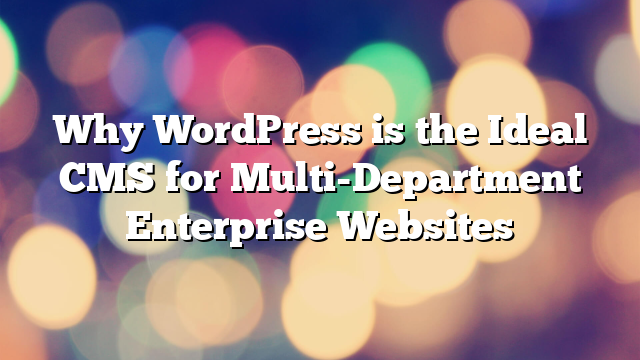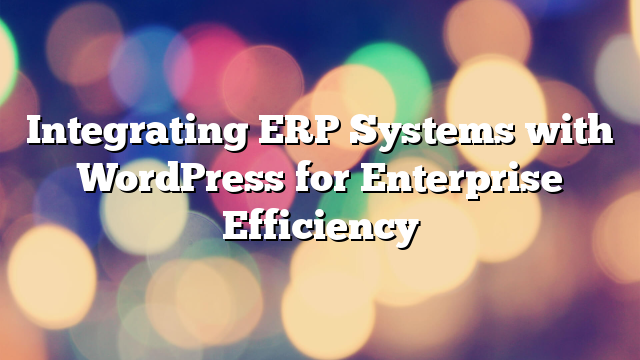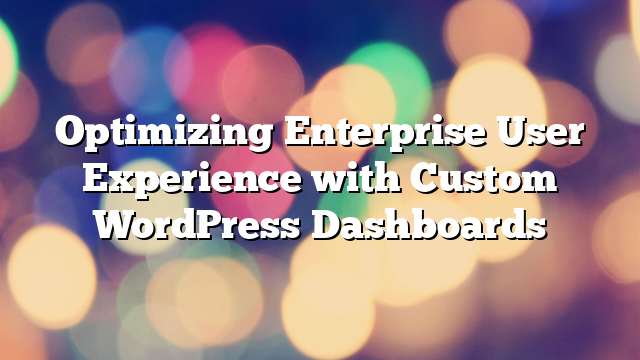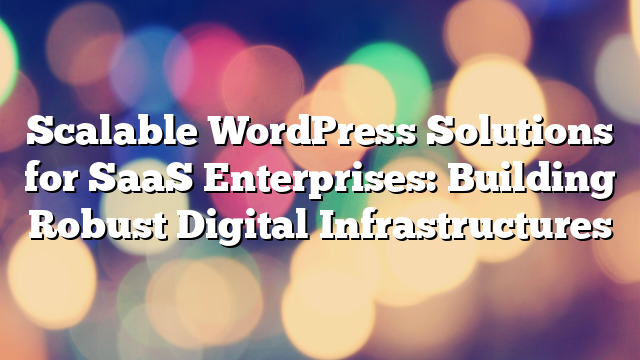Why WordPress is the Ideal CMS for Multi-Department Enterprise Websites
21.04.2025

Modern enterprises often operate with multiple departments, each requiring tailored digital solutions. Marketing needs a blog. HR needs a careers section. Customer service needs FAQs and ticketing integration. Managing all this under one platform might sound daunting — unless you’re using WordPress. Its flexibility, scalability, and vast ecosystem make it the ideal CMS for complex, multi-department websites.
Unifying Diverse Needs Under One Roof
One of the biggest challenges in enterprise digital infrastructure is unifying the needs of different departments. WordPress allows companies to maintain a single, centralized platform while empowering teams with the autonomy they need. Each department can have its own custom dashboard, post types, and content structures — without interfering with others.
Custom Roles and Permissions for Departmental Autonomy
WordPress supports a robust user role system that can be expanded with plugins or custom code. This means your HR team can publish job listings without touching the product blog, and the support team can update knowledge base articles without stepping into marketing content.
- Marketing: Editorial tools, SEO plugins, newsletter integration
- HR: Custom Post Types for job openings, applications, internal news
- Support: FAQ management, ticketing integration, chatbots
Custom Post Types and Taxonomies: Tailored Content Models
Custom Post Types (CPTs) allow enterprises to structure content uniquely for each department. You can have CPTs for Job Listings, Product Documentation, Events, or even Compliance Updates. Combined with custom taxonomies, every piece of content becomes easier to manage, search, and relate to other data types.
Multisite for Departmental Independence
For even more flexibility, WordPress Multisite enables you to create sub-sites for each department under a single installation. Each department gets its own website (like hr.company.com or marketing.company.com), while admins maintain centralized control over plugins, themes, and updates.
Seamless Integrations with Enterprise Tools
WordPress integrates smoothly with third-party tools used across departments — CRMs like Salesforce, HR tools like BambooHR, helpdesk systems like Zendesk, and marketing automation platforms like HubSpot. Through REST API or third-party plugins, your WordPress site becomes a command center for digital operations.
Enterprise-Level Security and Scalability
With the right setup — including managed hosting, enterprise-grade security plugins, and custom development — WordPress can meet the strictest IT policies. From SSO integration to vulnerability monitoring, it can be scaled to meet the needs of even the most regulated industries.
Real-World Example: Department-Centric WordPress Setup
A leading tech company approached Vipe Studio with the challenge of creating a single platform for marketing, HR, and support. We implemented a WordPress Multisite setup with tailored CPTs, workflows, and designs for each department. The outcome? Streamlined content publishing, easier internal communication, and unified brand presentation across all digital touchpoints.
Conclusion
WordPress isn’t just a blogging platform — it’s a powerful enterprise CMS that supports complex organizational structures. By leveraging Custom Post Types, user roles, integrations, and multisite capabilities, you can build a robust, multi-departmental ecosystem that grows with your business.
Need help architecting your enterprise WordPress environment? Contact Vipe Studio to design a flexible, future-proof solution that empowers all your departments.



